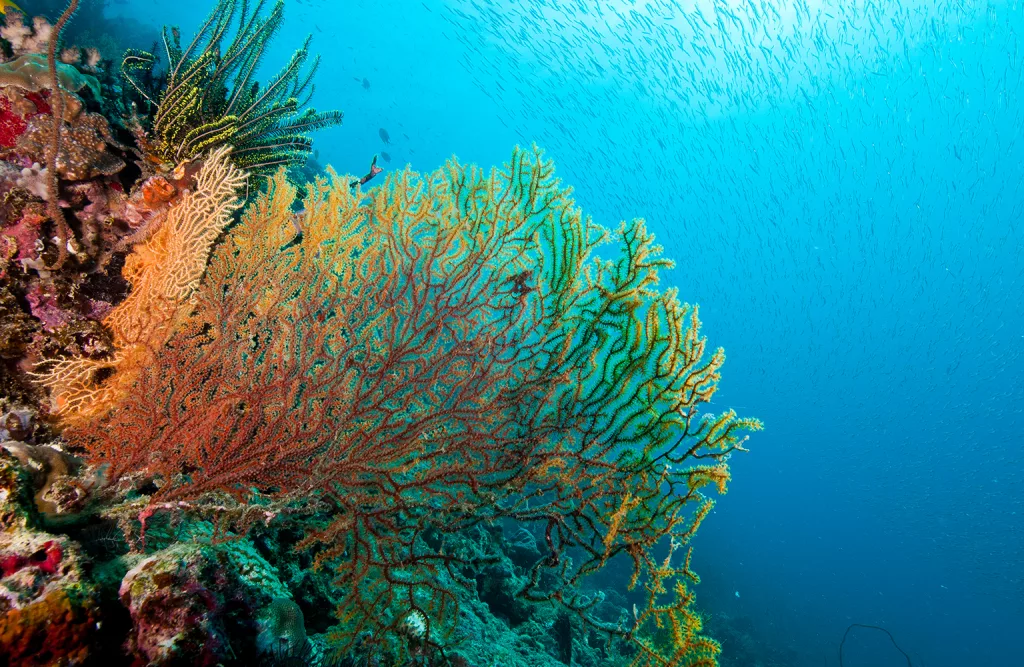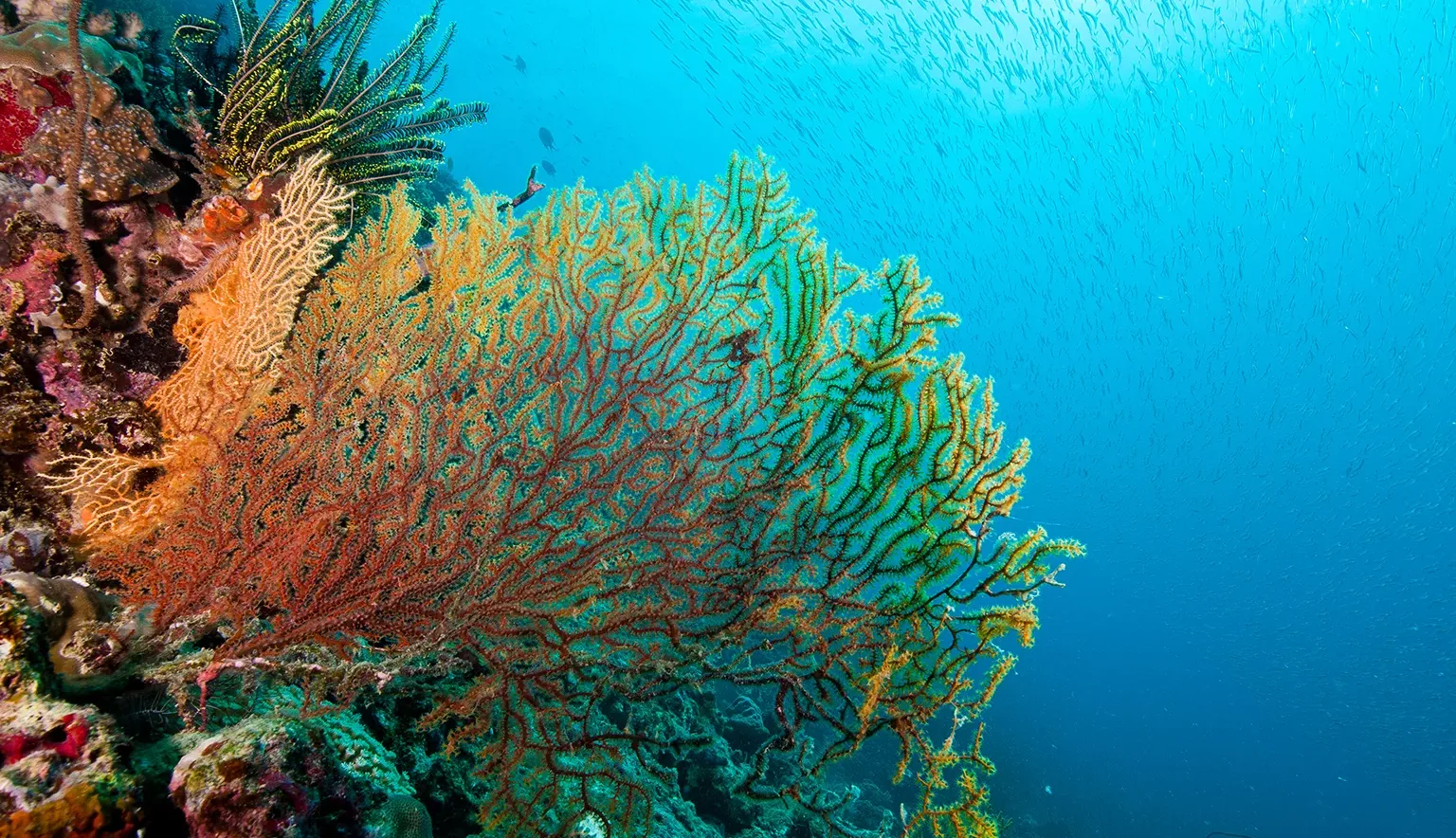Manuwuri Forester, Indigenous Partnerships Coordinator at the Australian Institute of Marine Science, recounts her journey of reconnecting with Country and working to build an organisation that supports Traditional Owners, First Nations women, and sustainable travel in Australia.
PROVIDING A VOICE TO SEA AND LAND COUNTRY
“The first time I went on Country was profoundly moving. As we crossed the Great Dividing Range and drove into the plateau on Lama Lama Country, I felt a deep connection. It was as if a hole in my chest had shrunk away to nothing.
“That moment was transformative for me, as I finally understood what Traditional Owners and the old people meant when they said that Country speaks to you and that you and Country are one.”
This enduring and emotional connection that unites people with their ancestry, as so earnestly expressed by Manuwuri Forester, Indigenous Partnerships Coordinator at the Australian Institute of Marine Science (AIMS), has driven individuals and organisations across Australia to reevaluate their relationship with the land, conservation efforts, and the Traditional Owners who have resided and cared for the nation for over 60,000 years.
Following colonisation, Australia’s First Nations Peoples – the Aboriginal and Torres Strait Islander Peoples – have been systemically excluded from participating in new markets and wealth creation for their nations.
Specifically, the First Nations Peoples have been locked out of formal management decisions that have affected their Country and communities, like those that directly influence one of the world’s most delicate and complex ecosystems, the Great Barrier Reef.
For decades, Traditional Owners have sought to remedy this with formal recognition of their inherent rights and interests in the Great Barrier Reef and its catchments, as Indigenous Peoples and Local Communities (IPLCs) are proven to be highly effective stewards of 80 percent of the planet’s remaining biodiversity.
Today, in partnership with the Great Barrier Reef Foundation, Traditional Owners are at the centre of the largest-ever co-designed Reef protection effort.
By combining Traditional Knowledge and Western science, innovative solutions are being developed and deployed to combat challenges threatening coral reefs.
Manuwuri is at the forefront of this change, having dedicated herself to advocating for the voices of First Nations Peoples and working with organisations to ensure that scientific programmes and research on sea Country are supported by Traditional Owners who are provided opportunities to have a genuine input, a platform, and respect.
For Manuwuri, reestablishing family ties to the Lama Lama People, the Traditional Owners of lands extending several hundred kilometres (km) along Princess Charlotte Bay, was one of the most critical steps in her journey.
“This profound connection reinforced my commitment to help my people. My grandfather was part of the Stolen Generation, and my mother had also been disconnected from Country for half her life. That first visit to Country changed me, and I decided to dedicate myself to serving our community,” she impassions.
Today, Manuwuri holds important roles within the community as a director for the Lama Lama Land Trust and the Lama Lama Aboriginal Corporation, alongside other roles within the wider region.
“As someone who was part of the Stolen Generation, to now be in these key positions and doing the work I do is truly special, and I’m so proud of the support from my family and community, which has allowed me to serve our people.”
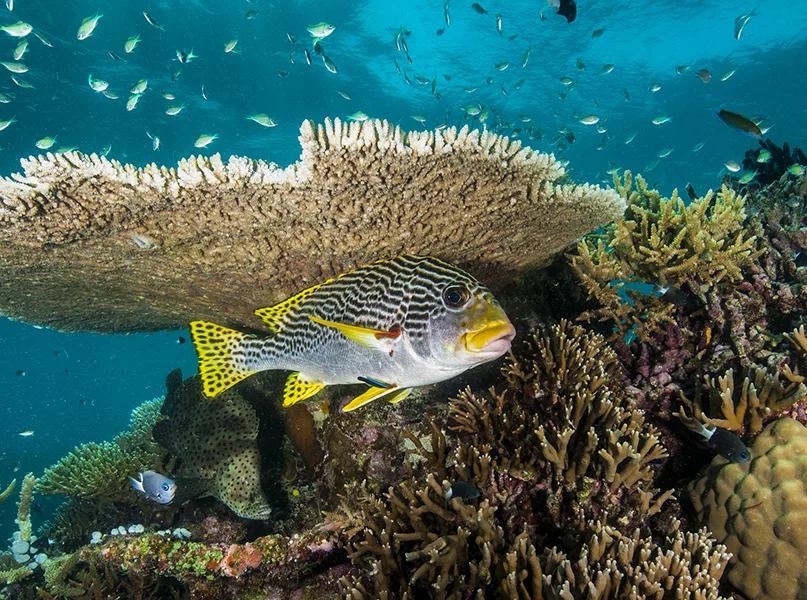
FINDING HER VOICE
Having begun working at a young age to help financially support her family, Manuwuri knew from the get-go that supporting people and the public was the right path for her.
Her interest in joint management grew when she served as the Board Secretary for Uluru-Kata Tjuta National Park, where her role required balancing Traditional and Western ways of business, thus honing her cultural and government engagement skills.
“My experience at Uluru enabled me to challenge and navigate Western governance structures effectively. For instance, during partnership meetings, I would ask for specific legislative references when told something wasn’t possible. Often, these restrictions were based on the status quo rather than law, and it was at these moments I knew change was possible,” she insights.
These eclectic experiences empowered Manuwuri to finally return to Lama Lama Country well-prepared and confident in her ability to enact a positive change for her community.
Manuwuri’s current role as Indigenous Partnerships Coordinator at AIMS took her from a small community of 30 people to an organisation with over 360 employees – a significant jump that resulted in a new and challenging experience.
“When I joined AIMS, there was little understanding or implementation of Traditional Owner engagement. I took the lead in introducing programmes and processes that incorporated Indigenous perspectives,” she details.
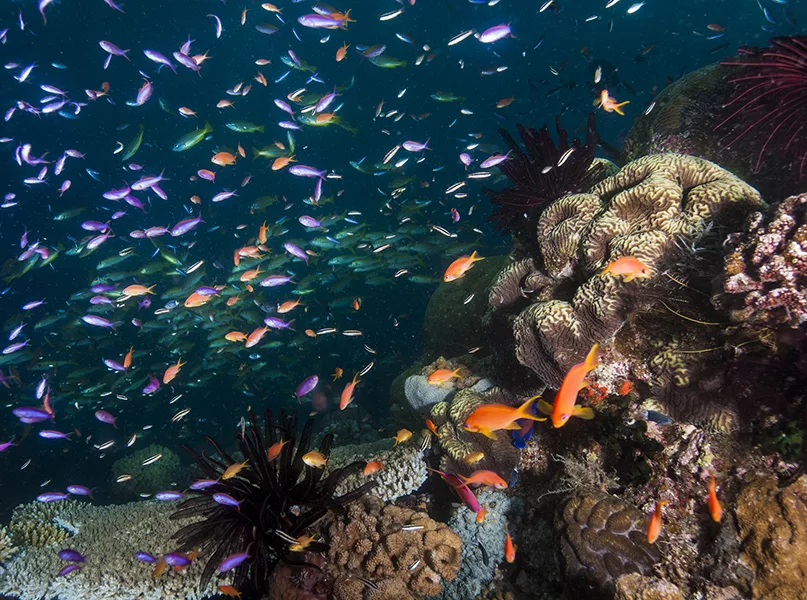
“I eventually realised that at home, I didn’t need to speak up because others would. However, at AIMS, I had to find my voice and advocate for Traditional Owner views.”
Today, AIMS is strong both culturally and in the Western way of doing business. The progress it’s made integrating Indigenous perspectives into marine science research and operations has been significant, and Manuwuri is proud of the role she’s played in that transformation.
One of the organisation’s current goals is to actively encourage Traditional Owners to share data and knowledge of their various projects. AIMS provides further assistance by offering to safeguard knowledge and data until Traditional Owners can manage it independently, as databases can prove expensive.
“We intend to bridge the gap between Western science and Traditional Knowledge. By combining both, we gain a more holistic understanding of ecosystems,” expands Manuwuri.
“Traditional Owners view the environment as an interconnected web, where impacts on one element affect the whole. This perspective enriches our scientific approach.”
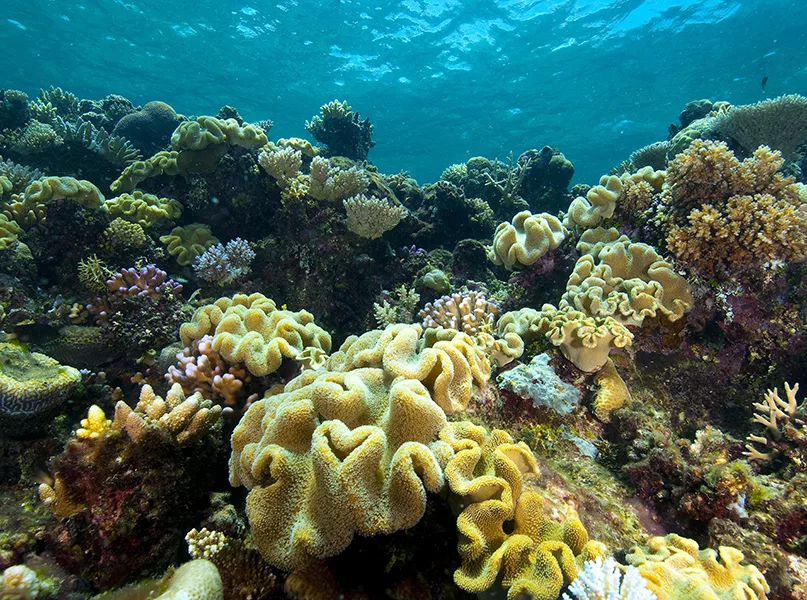
EDUCATING THE LEADERS OF TOMORROW
Empowering First Nations women to become leaders within their communities is a critical priority stemming from Manuwuri’s personal experience.
“Growing up, I was surrounded by strong women. My father wasn’t around, so my grandfather was the male figure in our family, while everyone else in the household was a woman. This environment showed me the strength and pivotal roles that women play,” she details.
When returning to Lama Lama Country, Manuwuri was again surrounded by powerful women.
“We had a programme that included women rangers and team leaders, which was rare at the time. Seeing my sisters excel in both governance and cultural practices was incredibly inspiring.”
Manuwuri credits these women for helping pave the way for her, especially as she was part of the Stolen Generation and had grown up disconnected from her culture.
Additionally, in Central Australia, she learned from the resilient women who were part of the Uluru Board of Management and acted as educators, passing on their knowledge and strength.
“Continuous exposure to strong female role models has helped shape me into who I am today. My sisters at home nurtured me, transforming me into a strong Lama Lama woman,” she prides.
Now, Manuwuri strives to continue this support by providing her expertise to others in the community. She supports young women through programmes such as Young Reef Leaders, designed to provide a culturally appropriate and safe platform for young Traditional Owner leaders to communicate their unique perspectives on issues related to the Great Barrier Reef.
“Empowering women is crucial as they are the first educators of their children. They need to be strong themselves to raise strong future leaders. By focusing on education and resilience, we can prepare our young women to be the leaders of tomorrow.”
Alongside the emphasis placed upon uplifting women, Manuwuri and AIMS highlight various key projects, such as furthering the rights and responsibilities of Traditional Owners in managing their Country.
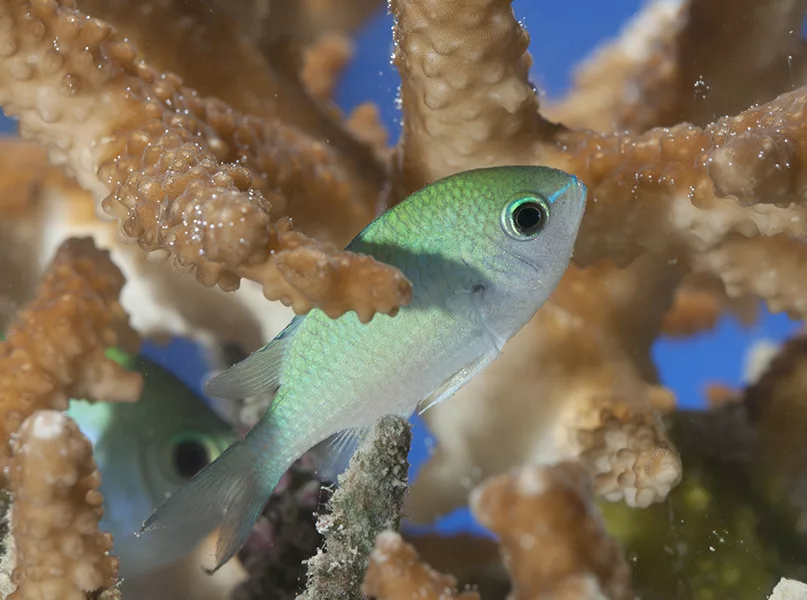
“From the start, I questioned why the government waited for legislation to drive engagement or change with Traditional Owners. I proposed that we should treat Traditional Owners as the rightful custodians of their lands and seas, even before formal recognition,” she explains.
Additionally, the AIMS team implemented the Free, Prior, and Informed Consent (FPIC) process, an initiative aimed at ensuring Traditional Owners are genuinely consulted and involved in decision-making processes. This initiative includes introducing an engagement tier system to formalise and enhance how institutions interact with Traditional Owners.
“The impact of these changes has been profound. Not only have they transformed how AIMS operates, but also influenced other government departments and institutions,” details Manuwuri.
“The legacy of our work is something the entire AIMS community is proud of, as it represents a significant shift towards inclusive and respectful engagement with Traditional Owners.”
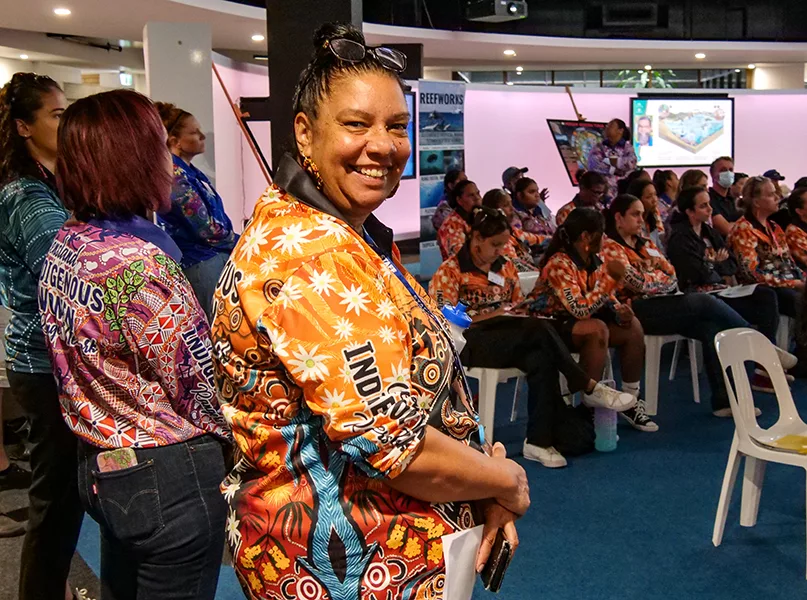
WEAVING TRADITION WITH THE FUTURE OF CONSERVATION
Having worked extensively with various government bodies, organisations, and Traditional Owners to cultivate a holistic approach to conservation, Manuwuri has created countless memories that have shaped her love for Country and her ability to help others.
A favourite experience was the accreditation of the Traditional Use of Marine Resources Agreement (TUMRA), of which Manuwuri was previously a coordinator.
“It felt like we had executed something monumental, and it was the first time I felt a great sense of achievement for Lama Lama,” she elates.
Another fond memory is Manuwuri’s time with the council in Alice Springs, where she had the privilege of meeting and engaging with influential leaders, such as her Uncle Sunlight, who emphasised the valuable lesson of knowing what you don’t want for Country.
“Working with such strong and dedicated individuals was incredibly rewarding, as we collectively strive for a greater say in what happens on our land and sea.”
As Manuwuri anticipates the future, she envisions a fully operational Sea Country Alliance on the Great Barrier Reef. To achieve this, Traditional Owner governance systems must operate at peak level and be on par with other regional stakeholders, such as tourism, commercial fisheries, and recreational fisheries.
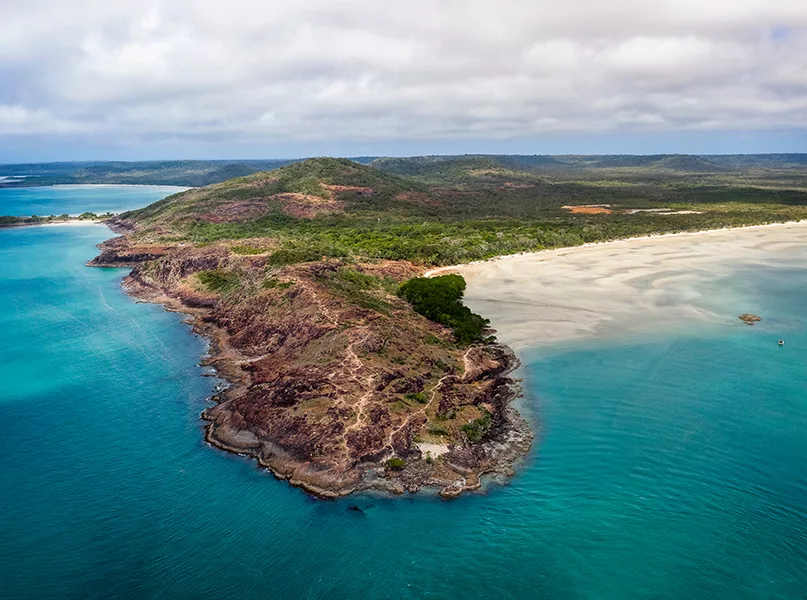
“Globally, it has been recognised that conservation efforts thrive when Traditional Owners lead them. We have repeatedly proven that Traditional Owners excel at looking after Country,” she asserts.
This belief was reinforced when Manuwuri travelled to Barcelona to attend the UN Ocean Decade Conference. There, she met international First Nations people and Traditional Owners and found that everyone’s goals and message were similar – emphasising conservation, sustainable fisheries, and incorporating Traditional Knowledge.
A key aspect of Manuwuri’s vision is ensuring that Traditional Knowledge is woven into conservation efforts.
Applying a cultural lens is crucial. This perspective allows people to view the land and sea differently, recognising the deep historical and kinship connections Traditional Owners have with these environments.
“Seeing Country through a kinship lens means acknowledging its importance, whether above or below water. This connection is rooted in our history and is vital for effective conservation,” she insights.
She hopes these values will continue to be recognised and integrated into all conservation efforts, ensuring Traditional Owner-led conservation becomes standard practice on the Queensland coast and beyond.
“Overall, the journey to becoming the person I am today involved significant changes, and I owe much to the support and influence of my family and community. Their guidance and encouragement have been pivotal in shaping my path and enabling me to contribute meaningfully to Traditional Owner-led conservation and governance,” Manuwuri concludes.
